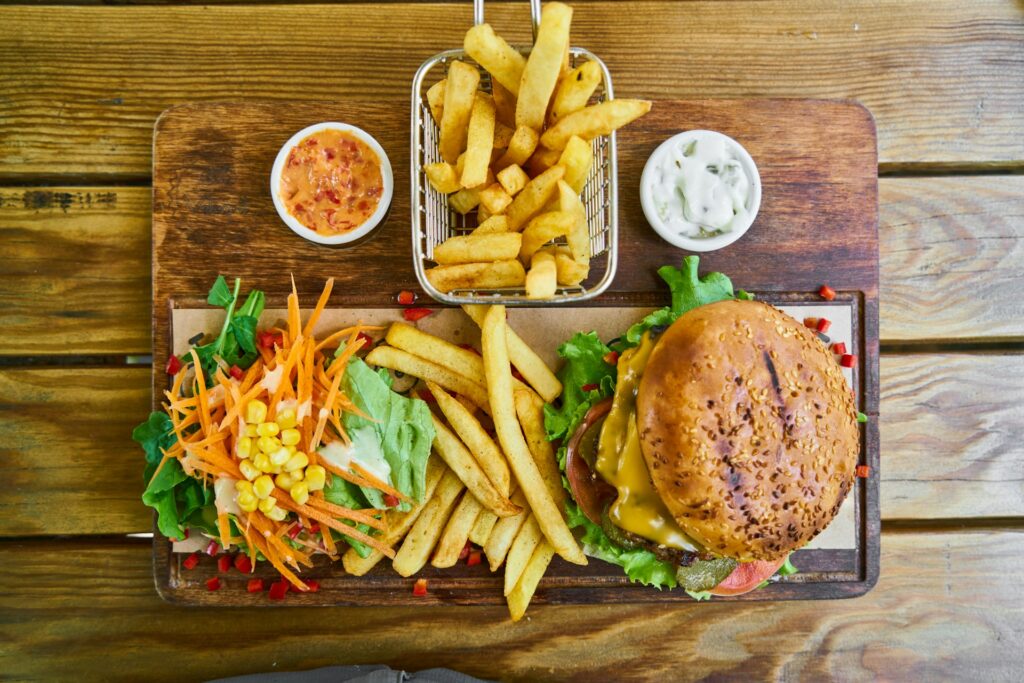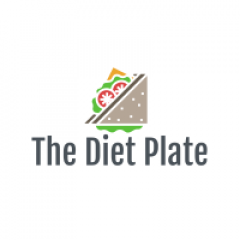
In the ever-evolving world of nutrition, it’s easy to get lost in the sea of diet advice, much of which is conflicting and confusing. The internet is full of myths about what we should and shouldn’t eat, leading to widespread misconceptions. This article aims to debunk some of the most common nutritional myths, helping you make more informed decisions about your diet. It will also allow you to wear men’s hoodies when you like, not when you have to, because your balanced diet will keep you fit and safe.
Myth: Carbs Are the Enemy
One of the most pervasive myths is that carbohydrates are inherently bad and should be avoided at all costs. This myth has been popularized by various low-carb diets, such as the ketogenic diet.

Fact: Carbohydrates are an essential part of a balanced diet. They are the body’s primary source of energy. Complex carbohydrates, found in whole grains, vegetables, and fruits, are particularly beneficial as they provide essential nutrients and fiber. While it’s wise to limit refined sugars and highly processed carbs, cutting out all carbs can lead to nutritional deficiencies and a lack of energy.
Myth: Eating Fat Makes You Fat
For decades, dietary fat was vilified as the main culprit behind obesity and heart disease. This led to a surge in low-fat products that often compensated with added sugar.
Fact: Not all fats are created equal. Healthy fats, such as those found in avocados, nuts, seeds, and olive oil, are vital for bodily functions, including hormone production and nutrient absorption. Trans fats and excessive saturated fats should be limited, but unsaturated fats can actually support heart health and weight management.
Myth: You Need to Detox Your Body
Detox diets and cleanses are often marketed as ways to remove toxins from your body and jumpstart weight loss. These programs typically involve consuming specific juices, teas, or supplements.
Fact: The body is naturally equipped to detoxify itself through the liver, kidneys, and digestive system. There is no scientific evidence supporting the effectiveness of detox diets in improving health or aiding weight loss. In fact, extreme detox programs can be harmful, leading to nutrient deficiencies and other health issues. Instead, focus on a balanced diet rich in whole foods to support your body’s natural detoxification processes.
On the other hand, detoxing your home can be more than useful, consider using mold removal services in Newport Beach, CA to clean your household from any kind of pests.
Myth: Skipping Meals Helps with Weight Loss
Skipping meals, particularly breakfast, is a common tactic among those trying to lose weight. The logic seems simple: eating fewer meals should result in consuming fewer calories.
Fact: Skipping meals can backfire by slowing down your metabolism and leading to overeating later in the day. Eating regular, balanced meals helps maintain stable blood sugar levels and keeps your metabolism active. For sustainable weight loss, focus on portion control and eating nutrient-dense foods rather than skipping meals. When you have a busy day, like, having to buy some products in a mattress store in Erie, PA, always have a whole-grain snack with you to have a bite quickly and not skip a meal.
Myth: All Calories Are Equal
The calorie-counting method of weight management suggests that all calories have the same impact on the body, regardless of their source.
Fact: The source of calories matters significantly. 100 calories from a sugary snack will not have the same effect on your body as 100 calories from a handful of nuts. Foods high in fiber, protein, and healthy fats are more satiating and provide more sustained energy than those high in sugar and refined carbohydrates. Quality matters just as much as quantity when it comes to calories.
Myth: High-Protein Diets Are Best for Everyone
High-protein diets have gained popularity, especially among athletes and those looking to build muscle or lose weight. The belief is that protein is superior to other macronutrients for weight loss and muscle gain.
Fact: While protein is essential for muscle repair and growth, excessive protein intake can lead to health issues, including kidney damage and nutrient imbalances. A balanced diet that includes adequate protein, along with carbohydrates and fats, is crucial for overall health. Individual protein needs vary based on factors such as age, activity level, and health status. Luckily, muscles are not needed to play Seattle escape room.
Myth: Supplements Can Replace a Healthy Diet
With the growing market for dietary supplements, many people believe they can compensate for a poor diet by taking vitamins and minerals in pill form.

Fact: Supplements should not replace a healthy diet. Whole foods provide a complex array of nutrients that work together synergistically, something supplements cannot fully replicate. While supplements can be beneficial in certain situations, such as for individuals with specific nutrient deficiencies, they are not a substitute for the nutrients found in whole foods. Of course, preparation takes some time, but if you’re facing electrical issues, consider contacting an emergency electrician in Plano, TX.
Myth: Gluten-Free Diets Are Healthier for Everyone
The gluten-free diet has become a trend even among those who do not have celiac disease or gluten sensitivity. Many believe that avoiding gluten is inherently healthier.
Fact: For individuals with celiac disease or gluten sensitivity, a gluten-free diet is necessary. However, for those without these conditions, there is no evidence that a gluten-free diet provides health benefits. In fact, many gluten-free products are highly processed and lack essential nutrients found in whole grains. A balanced diet that includes a variety of grains is generally healthier for those without gluten-related disorders.
Myth: Eating Late at Night Causes Weight Gain
The idea that eating after a certain time, such as 8 PM, leads to weight gain is a common belief. This myth is based on the assumption that the body processes food differently at night.
Fact: Weight gain is determined by the total amount of calories consumed versus calories burned, not the timing of meals. Eating late at night doesn’t inherently cause weight gain, but it can lead to poor food choices and overeating if you’re consuming high-calorie snacks. It’s more important to focus on what and how much you eat rather than when you eat.
Myth: Fresh Produce Is Always Healthier Than Frozen
Many people believe that fresh fruits and vegetables are more nutritious than frozen ones.
Fact: Frozen produce can be just as nutritious, if not more so, than fresh produce. Frozen fruits and vegetables are often picked at peak ripeness and quickly frozen, preserving their nutrients. Fresh produce, on the other hand, can lose nutrients during transportation and storage. Both fresh and frozen fruits and vegetables can be part of a healthy diet. In any case, quality food can be costly, but if you rely on debt relief, there are no worries.
Myth: You Need to Eat Small, Frequent Meals to Boost Metabolism
The idea that eating small, frequent meals throughout the day boosts metabolism and aids in weight loss is a popular one.
Fact: There is no conclusive evidence that eating small, frequent meals increases metabolism compared to eating three larger meals. What matters more is the overall quality and quantity of food consumed. Some people may find that eating more frequently helps them control hunger and manage portion sizes, but it’s not a one-size-fits-all approach.
Myth: Organic Foods Are Always Healthier
The term “organic” has become synonymous with healthier food choices. Many people believe that organic foods are more nutritious and better for you.
Fact: Organic foods are produced without synthetic pesticides and fertilizers, which can be beneficial for the environment and reduce exposure to certain chemicals. However, studies have shown that organic foods are not necessarily more nutritious than conventionally grown foods. The most important factor is eating a variety of fruits and vegetables, regardless of whether they are organic or not.
Myth: You Should Avoid All Processed Foods
The term “processed foods” often carries a negative connotation, leading many to believe that all processed foods are unhealthy.
Fact: Not all processed foods are bad. Processing can include actions like freezing, canning, or drying, which can help preserve nutrients and extend shelf life. The key is to distinguish between minimally processed foods, like frozen vegetables and canned beans, and highly processed foods, like sugary snacks and ready meals high in sodium and unhealthy fats. Moderation and careful selection are crucial.
Many restaurants, thanks to professional global retail advisory, include food processed in a healthy way in their menus, so the customers can order a delicious meal that is also healthy.
Myth: Drinking More Water Will Lead to Weight Loss
Many weight loss programs emphasize the importance of drinking large amounts of water, claiming it helps shed pounds.
Fact: While staying hydrated is essential for overall health and can help control hunger, drinking excessive amounts of water alone will not lead to significant weight loss. Water can temporarily boost metabolism and reduce calorie intake if it replaces sugary drinks, but it is not a magical weight loss solution.
In conclusion, navigating the world of nutrition can be challenging with so many myths and misconceptions circulating. It’s crucial to rely on scientifically-backed information and consult with healthcare professionals when making dietary decisions. A balanced diet that includes a variety of whole foods, adequate hydration, and regular physical activity is the foundation for good health. By debunking these myths, you can make more informed choices that support your well-being and long-term health.
